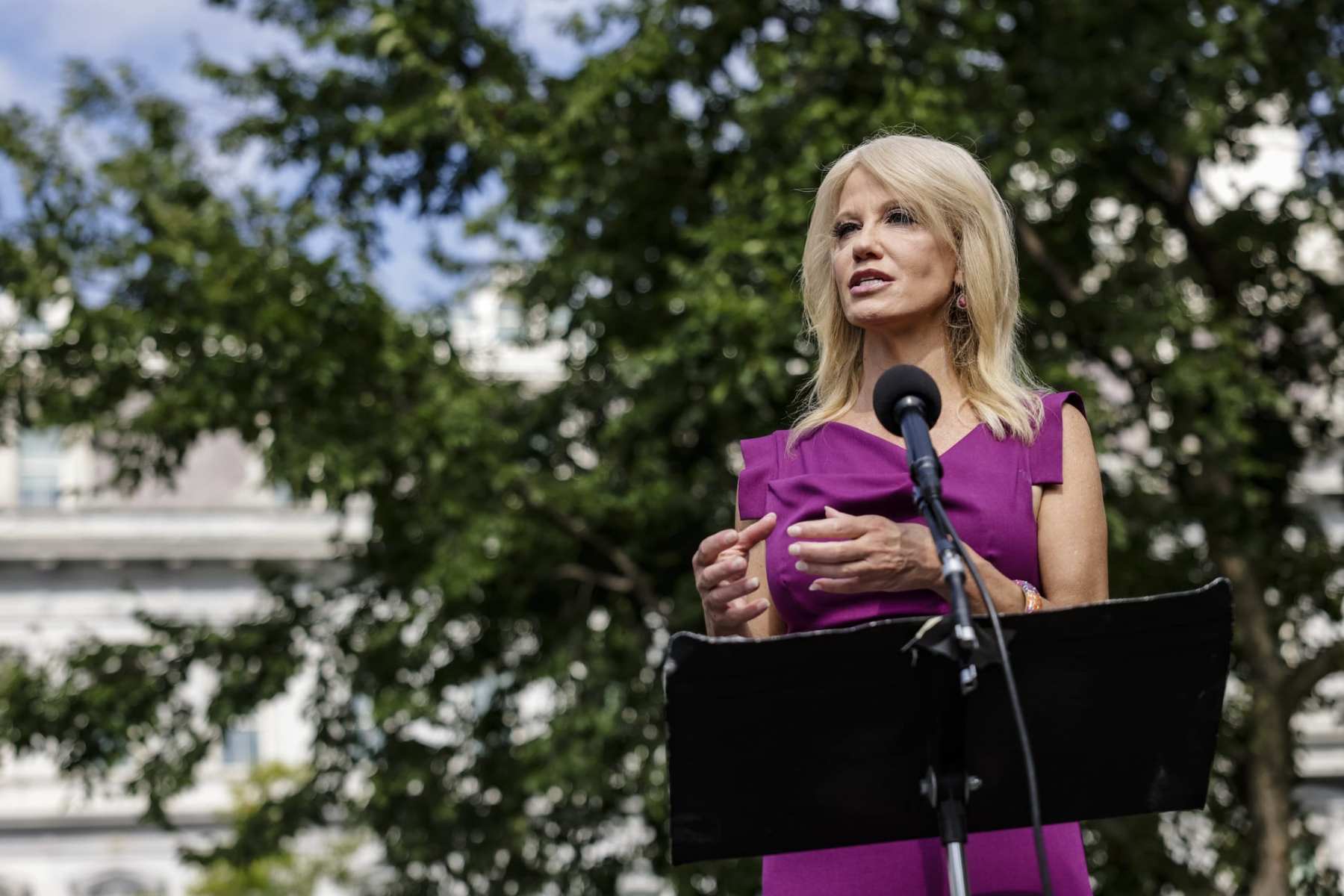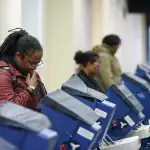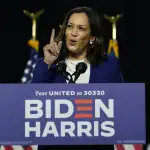Kellyanne Conway said President Donald Trump has “the right” to exhaust his legal challenges, but acknowledged that Joe Biden appears headed to the White House as the next president of the United States.
“The president wants to exhaust all of his legal avenues, as he has made clear many times. His team is doing that, and that is his right,” Conway said in an interview with The 19th’s Washington correspondent, Amanda Becker, that aired Friday. “If you look at the vote totals in the Electoral College tally, it looks like Joe Biden and Kamala Harris will prevail. I assume the electors will certify that and it will be official. We, as a nation, will move forward, because we always do.”
Conway also pledged to work with “future administrations,” saying: “If there’s anything I can ever do to help … they can count on me.”
“You always need a peaceful transfer of democracy, no matter whose administration goes into whose administration,” she added.
Biden was declared the winner by multiple media outlets on November 7, receiving 306 Electoral College votes and more than 81 million votes — more than any presidential candidate in U.S. history and 7 million more than Trump. The president continues to raise concerns about voter irregularities and widespread fraud despite a lack of evidence and Chris Krebs, the former director of U.S. cybersecurity and infrastructure security, declaring the 2020 election “the most secure in election history.”
Conway, a longtime Republican pollster who made history in 2016 as the first woman to successfully manage a winning presidential campaign, joined a “Live with The 19th” event focused on the women’s electorate in 2020 for a wide-ranging interview.
Conway dismissed the narrative of a “women’s vote,” emphasizing that women are not monolithic in their politics and that there were misconceptions about conservative women in polling this cycle.
“Women and men usually care about the same issues, but sometimes they look at them very differently,” Conway said, pointing out the role of the pandemic as a factor in how women voted, calling them the “chief health care officers of their households.”
“Women had a certain stake in 2020 that nobody could’ve seen coming early on that ended up being a defining issue for many Americans,” she said. “Women will continue to surprise us. Sometimes they repeat history and sometimes they make it as voters.”
Conway said she was surprised by what she saw as a messaging absence among Democrats of a perennially polarizing issue during the campaign cycle: abortion.
“In past Democratic conventions, it’s all you heard about,” Conway said, pointing to a Washington Post analysis of frequently-used words at this summer’s Democratic and GOP conventions that showed Democrats barely mentioned the issue, while Republicans did so more than thirty times. “It’s very fascinating to me that this time, particularly with a woman on the Democratic ticket, that you heard very little.”
Conway said that while women are usually late-in-the-game deciders, the pandemic and mail-in balloting drove some to the polls amid the twists and turns of the election process. The presumption that the president’s divisive rhetoric or Twitter threads would turn off conservative women — who doubled down on Trump in November according to early exit polling, in contrast to what many polls indicated heading into the election — was among the misconceptions she said the Trump campaign saw, and that she called harmful to voter participation.
Among Trump’s most loyal and longest-serving advisers and a Washington political veteran, Conway credited Trump with giving her a pioneering role as campaign manager and said it’s important for women to have a seat at the table.
“I had worked arduously in politics and polling … there was a certain exclusion of me in the party and the big job sometimes,” Conway said. “I never got the big gig.”
Trump, she continued, “elevated me and, more importantly, empowered me.”
“When he asked me to be campaign manager, he and I didn’t realize no woman had ever done it for a Republican campaign,” Conway said. “He wanted me to do it because he thought I had great political instincts and organizational skills, was great on TV and was very good with the staff.”
During her tenure, Conway was a staunch defender of the president and a key messenger for his politics and policies. Within days of Trump taking office in January 2016, Conway coined the phrase “alternative facts” in an interview where she discussed former press secretary Sean Spicer’s remarks exaggerating the crowd size on Inauguration Day in his first White House briefing with reporters.
Conway left the White House in August and said in a statement that she was stepping down to focus on her family. She continues to advise Trump informally and spoke with him as recently as this week.
Asked about her future plans, Conway declined to elaborate on what she will do next, but said she continues to concentrate on her four children in the pandemic who are mostly learning virtually.
“I’m sure I’ll have a foot in politics still, but I really loved public service,” said Conway, who added she will continue her work on opioid addiction as well as doing some public speaking, writing and consulting.
She also hopes to use the lessons learned from the pandemic to help in a nonprofit or public service role.
“My kids are privileged … What this pandemic has done has created another pandemic within it for many of our nation’s schoolchildren,” Conway said. “I wouldn’t mind being part of the solution on the back end for how we make up for all that lost time and the mental health challenges that go with that.”





